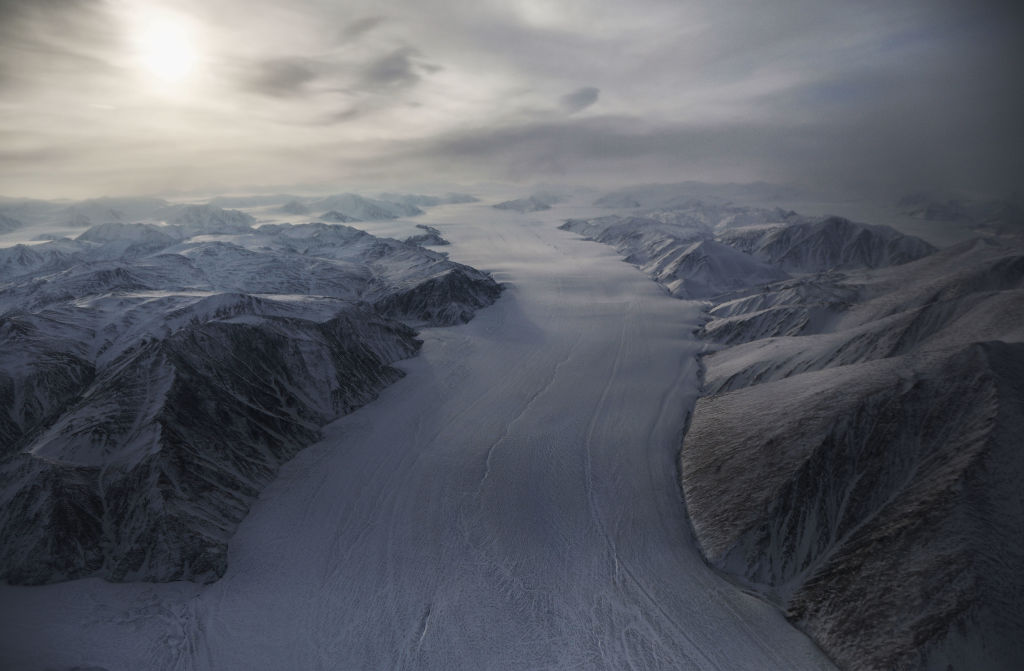Melting of Arctic permafrost leads to greenhouse gas emissions, says NOAA's 2019 Arctic Report Card


A free daily email with the biggest news stories of the day – and the best features from TheWeek.com
You are now subscribed
Your newsletter sign-up was successful
Warming air and water temperatures, eroding sea ice, and wildlife showing signs of stress — the Arctic Report Card for 2019 portrays a rapidly changing climate and ecosystem.
The National Oceanic and Atmospheric Administrations' report, released Tuesday, outlines how arctic ecosystems and communities are at risk. Meanwhile, world leaders are at the COP25 climate summit in Madrid working on ways to approach the crisis.
Scientists noted that feared climate change acceleration may already be underway. The soil underneath Arctic permafrost contains about twice as much carbon as is currently in the atmosphere, per the report. As temperatures rise, this carbon is released into the atmosphere in the form of greenhouse gasses, creating a loop of climate change acceleration.
The Week
Escape your echo chamber. Get the facts behind the news, plus analysis from multiple perspectives.

Sign up for The Week's Free Newsletters
From our morning news briefing to a weekly Good News Newsletter, get the best of The Week delivered directly to your inbox.
From our morning news briefing to a weekly Good News Newsletter, get the best of The Week delivered directly to your inbox.
"We've turned this corner for Arctic carbon," Ted Schurr, a researcher at Northern Arizona University who was involved with the report card, told The Washington Post, and the amount of carbon emitted in the Arctic will continue to grow. This will make achieving carbon-cutting goals of the Paris Climate Agreement even more difficult.
Indigenous Elders in the Bering Sea region are among the first groups of people to experience hardships of climate change, as the Arctic region is warming twice as fast as the global average. The report states that climate change is threatening their "homes, schools, airports, and utilities."
"We fear for our young people," they said in the report. "We worry that they will grow without the same foods and places that we have known throughout our lives."
The Arctic report card was the 14th annual from the NOAA, and was developed by 81 scientists from 12 countries.
A free daily email with the biggest news stories of the day – and the best features from TheWeek.com
Taylor Watson is audience engagement editor for TheWeek.com and a former editorial assistant. She graduated from Syracuse University, with a major in magazine journalism and minors in food studies and nutrition. Taylor has previously written for Runner's World, Vice, and more.
-
 How the FCC’s ‘equal time’ rule works
How the FCC’s ‘equal time’ rule worksIn the Spotlight The law is at the heart of the Colbert-CBS conflict
-
 What is the endgame in the DHS shutdown?
What is the endgame in the DHS shutdown?Today’s Big Question Democrats want to rein in ICE’s immigration crackdown
-
 ‘Poor time management isn’t just an inconvenience’
‘Poor time management isn’t just an inconvenience’Instant Opinion Opinion, comment and editorials of the day
-
 Nobody seems surprised Wagner's Prigozhin died under suspicious circumstances
Nobody seems surprised Wagner's Prigozhin died under suspicious circumstancesSpeed Read
-
 Western mountain climbers allegedly left Pakistani porter to die on K2
Western mountain climbers allegedly left Pakistani porter to die on K2Speed Read
-
 'Circular saw blades' divide controversial Rio Grande buoys installed by Texas governor
'Circular saw blades' divide controversial Rio Grande buoys installed by Texas governorSpeed Read
-
 Los Angeles city workers stage 1-day walkout over labor conditions
Los Angeles city workers stage 1-day walkout over labor conditionsSpeed Read
-
 Mega Millions jackpot climbs to an estimated $1.55 billion
Mega Millions jackpot climbs to an estimated $1.55 billionSpeed Read
-
 Bangladesh dealing with worst dengue fever outbreak on record
Bangladesh dealing with worst dengue fever outbreak on recordSpeed Read
-
 Glacial outburst flooding in Juneau destroys homes
Glacial outburst flooding in Juneau destroys homesSpeed Read
-
 Scotland seeking 'monster hunters' to search for fabled Loch Ness creature
Scotland seeking 'monster hunters' to search for fabled Loch Ness creatureSpeed Read
